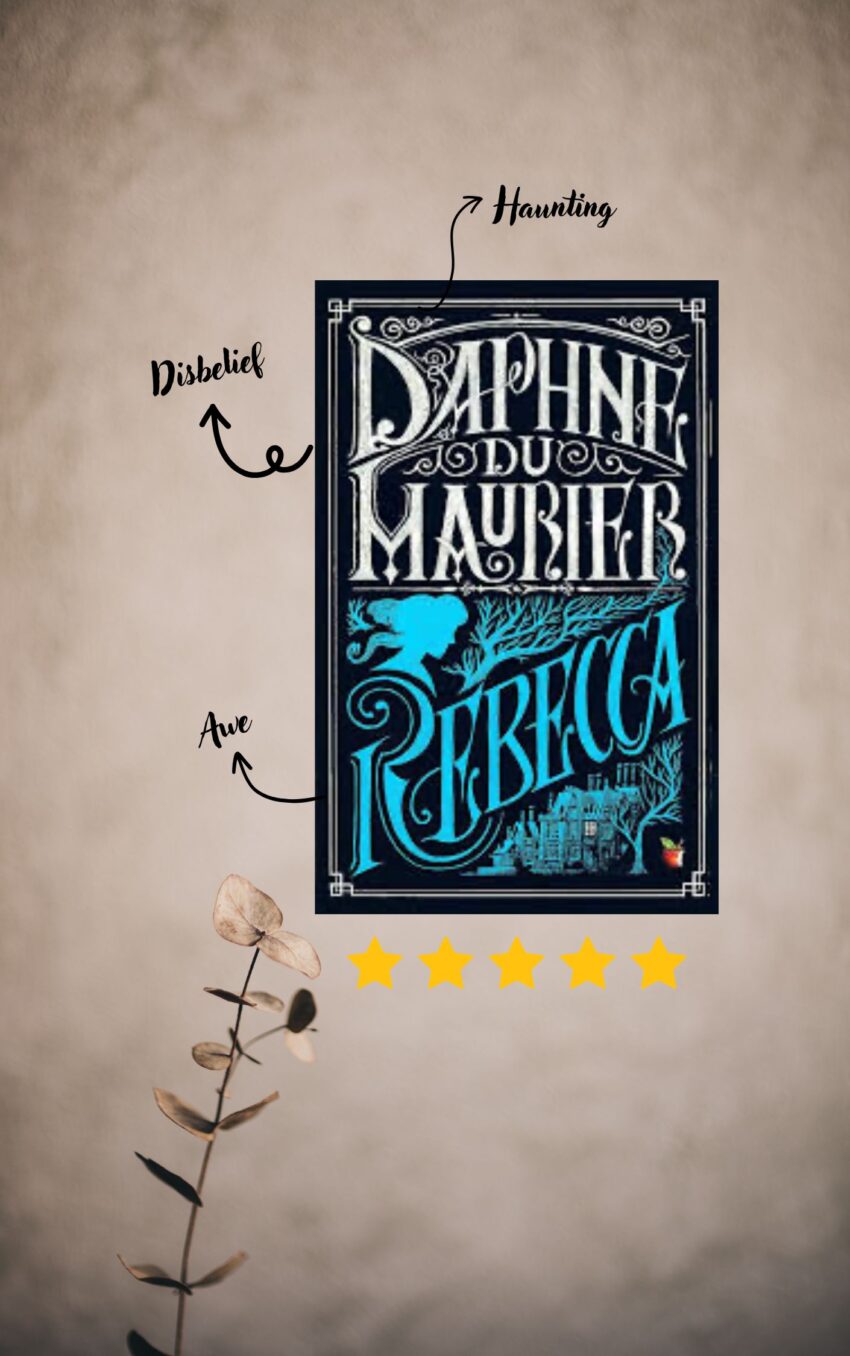I’ll admit, Rebecca had been on my reading list for a long time, but I never really knew what to expect. Everyone talks about how it’s a classic, but I had no idea how it would completely consume me once I started it. From the first page, I was pulled into this world of suspense and psychological tension, and I honestly couldn’t put the book down.
What I found most intriguing was how Du Maurier made me feel like I was walking through the shadows of Manderley alongside the unnamed narrator. She’s a character I could relate to in a way I didn’t expect. The way she’s constantly in Rebecca’s shadow, always feeling inadequate and unsure of herself, reminded me of times in my own life when I’ve compared myself to others, unsure if I could ever measure up. But Rebecca takes it to a whole new level—there’s this constant underlying dread that builds, making the narrator’s insecurities not just relatable, but almost palpable.
Maxim de Winter, the man she marries, is another character who had me hooked. At first, I couldn’t figure him out. Is he charming? Mysterious? Detached? All of the above? But it’s his complicated relationship with Rebecca, the specter of his first wife, that really holds the key to everything. Du Maurier’s slow reveal of Rebecca’s presence in the house, in Maxim’s mind, and in the minds of the staff at Manderley, kept me on the edge of my seat. The tension was so thick I could almost feel it, and I couldn’t help but want to know more with every page.
And then there’s Mrs. Danvers. I’ve rarely encountered a character so chilling. Her obsession with Rebecca is both disturbing and fascinating, and her cruelty towards the narrator really pushed me to the edge of my seat. I found myself both terrified and captivated by her every time she appeared, and I couldn’t shake the feeling that she was somehow controlling everything that was happening at Manderley. It’s funny, because the whole time I thought the book would be a straightforward mystery or romance, but it was more of a psychological unraveling—almost like a puzzle that wasn’t just about discovering who did what, but about understanding the complexities of human nature.
By the end, I was left with so many emotions—disbelief, sadness, awe, and a little bit of relief. Rebecca isn’t just a story about a woman in a beautiful, haunted house. It’s about identity, memory, and the way the past can shape the present. Du Maurier makes you question how much of what we know about people, especially ourselves, is based on what we’ve been told or what we choose to believe.
Honestly, I found myself thinking about Rebecca long after I finished it. It’s one of those books that lingers in your mind, making you reflect on your own experiences, your own relationships. The atmosphere, the characters, the writing—it all just stayed with me in a way I didn’t expect. I’m so glad I finally read it. If you haven’t yet, I really think you should. It’s a haunting, unforgettable read.
